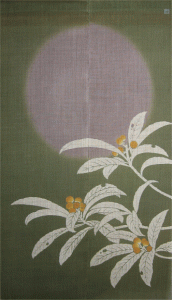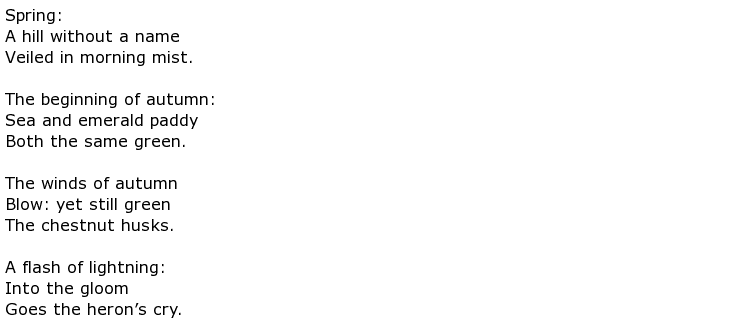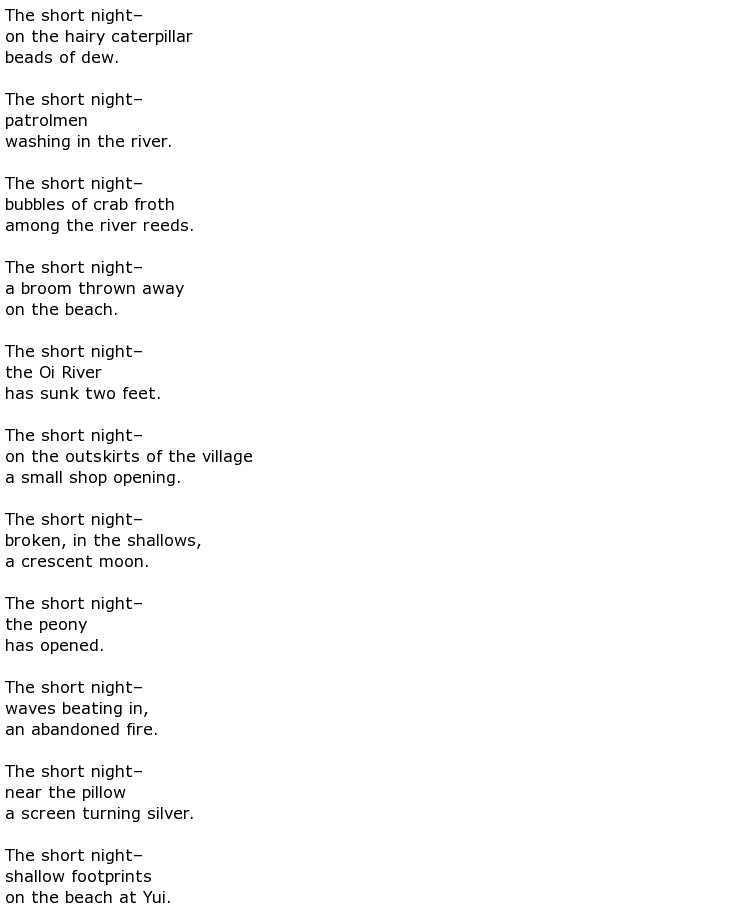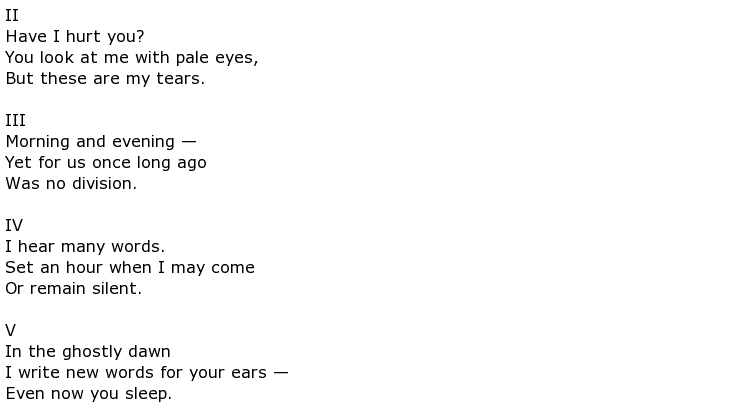 Haiku poems are among the most popular of the poetic forms, appealing to poetry lovers of all ages. Seemingly simple, deceptively direct, haiku poems are actually much more intricate than the few lines that comprise them would at first suggest.
Haiku poems are among the most popular of the poetic forms, appealing to poetry lovers of all ages. Seemingly simple, deceptively direct, haiku poems are actually much more intricate than the few lines that comprise them would at first suggest.
Haiku poems originated in Japan, where these poems were even more structured than they are today. Each haikai, or individual poem, consists of 17 morae (or on), which translates roughly to syllables in English. These are arranged in metrical phrases of 5, 7 and 5 morae. The traditional Japanese haikai was limited to seasonal concepts; each poem includes a kigo, or seasonal reference, to indicate to the reader which season the poem was written about. When written in Japanese, haiku appear in a single line.
English haiku poems are slightly different, although they do retain some of the elements of the Japanese haiku. Like the Japanese haiku, the English language haikai’s first line usually consists of 5 syllables, while the second line contains 7 syllables, the third line returning to 5 syllables. Unlike Japanese haiku, English haiku do not always contain seasonal references.
Due to haiku’s brevity, there is no room for exposition, and therefore you rarely find haiku poems that attempt to tackle difficult concepts. Rather, haiku’s beauty comes from the very fact that a concept must be expressed in the fewest words possible, where each word truly counts.
An example of the traditional Japanese haiku poems is Matsuo Basho‘s (1644-1694 ) “Four Haiku,” which discuss the four seasons:

Japanese haiku poet Yosa Buson (1716-1783) wrote an entire series of haiku poems beginning with the same line – “The Short Night:”

One of the first American poets to write haiku was Amy Lowell (1874-1925), who wrote a series of haiku poems on what she referred to as a “modern theme.” These haiku broke with the Japanese tradition by abandoning the seasonal themes. Here are a few examples:

Even American Beat poet Jack Kerouac tried his hand at haiku, composing several of the poems, all of them aptly titled “Haiku.” This is one of them:

Haiku poems have changed greatly as they have migrated from Japanese to the English language. No longer restricted to seasonal themes, these poems now retain the Japanese form, while expanding to include any theme that can be expressed as succinctly as haiku require.


Comments2
NICE POEM
What about the countless japanese death poems?
The ones that were never over 3 verses.
http://mypoeticside.com/wp-content/uploads/textimage/1b1534093b56e8ff00eee9ac593a20c4.png
nonono.
that is 4 syllables,
4 syllables,
5 syllables
You must register to comment. Log in or Register.